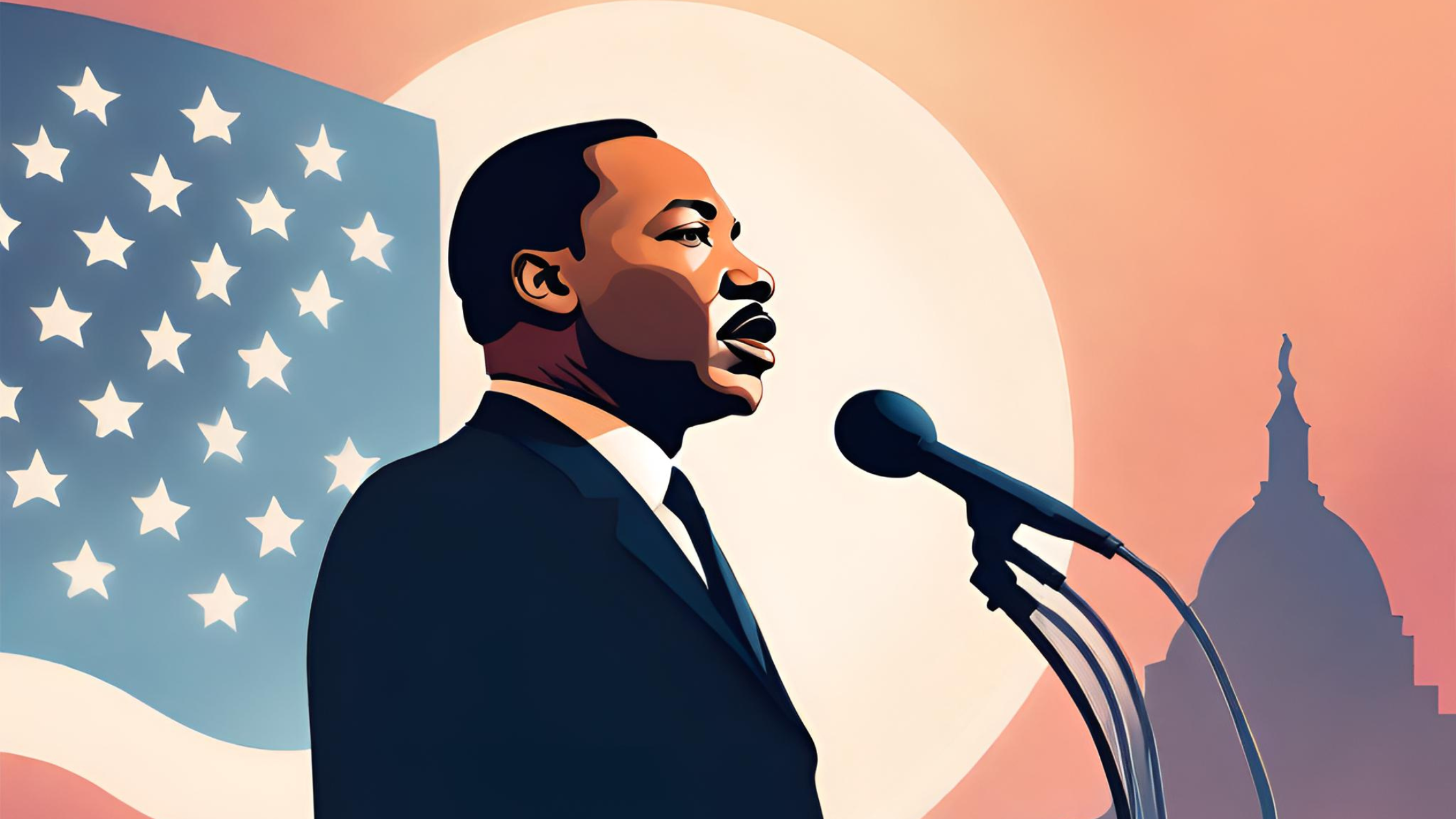
January 20, 2024
A Dream Realized: MLK Day Reflection on Contemporary DEI Initiatives
Mosaic Blog
As the 24th nationally recognized MLK Day has just passed, we want to take a moment to discuss the legacy of freedom fighters, like Dr. Martin Luther King Jr., whose message and mission resonates profoundly in the modern corporate landscape that has embraced Diversity, Equity, and Inclusion (DEI) as central tenets of progressive workplace culture. This article explores the enduring impact civil activists have on the application of DEI principles and delves into the substantial benefits that arise from putting diversity into action and fostering an inclusive workplace.
Contemporary Significance of MLK Day
MLK Day is not just a day off from work or school or a consumerism-driven holiday. We celebrate this holiday to commemorate Dr. Martin Luther King Jr.’s tireless advocacy for civil rights in the 1950s and 1960s that, in many ways, laid the groundwork for conversations and applications around diversity, equity, and inclusion that continue to shape modern organizations.
We have civil rights activists like Dr. King to thank for their push for equitable representation in civil and social spheres. Large displays of nonviolent protests like the March on Selma (1965) were adamant refusals to accept the status quo of that period that legally allowed democracy to be suppressed. As conversations around the current threat to democracy continue to swirl around us, we need to be reminded of how precarious equitable opportunities were at times in our history. Many individuals paved the way for eradicating discrimination in every realm of our lives so we must not take for granted the space that has opened up for equitable representation in modern approaches to work culture and instead continue to push the needle when it comes to things like sourcing talent and philanthropic ventures.
Continuing MLK’s Legacy
Over the past few years, conversations surrounding inclusion have only just become mainstream, but, oftentimes, these conversations are devoid of tangible action items or specific desired outcomes. Instead of making shallow efforts towards solidarity with diverse communities, we have to persistently make concerted efforts to keep conversations and action items about inclusive and equitable workspaces alive and well.
The principles advocated by freedom fighters like Dr. King remain instrumental in shaping the application of DEI in the modern workplace. Beyond moral imperatives, the benefits of embracing diversity, ensuring equity, and fostering inclusion are integral to organizational success. Employers are called to action, not only to honor the legacy of these major civil rights activists but also to reap the tangible rewards that come from cultivating a diverse, equitable, and inclusive workplace.
Benefits of Applied Diversity, Equity, and Inclusion
To ensure the sacrifices made by those who strived for a more equitable society were not made in vain, we must continue their work and let it be reflected in every aspect of our lives, including our workspaces. There is no use in having endless conversations and flashy displays of advocacy that are purely aesthetic if companies aren’t putting energy towards actively applying DEI initiatives with tangible outcomes.
Days like MLK Day shouldn’t pass us by as just another day off; instead, we want to shed light on the ways modern workplaces can be improved by recognizing the value of a diverse work environment and the impact freedom fighters like Dr. King have had on making this possible. While this list is by no means comprehensive, here are a handful of ways organizations stand to benefit by applying best DEI practices.
Enhanced Innovation and Creativity
Embracing diversity in the workplace brings together individuals with unique perspectives, experiences, and ideas. Sourcing talent from a diverse pool of applicants with a range of experiences and perspectives sparks a level of creativity that just cannot be achieved by limiting your recruitment methods. This diversity of thought fuels innovation and creativity, driving organizations to find novel solutions and remain competitive in the rapidly evolving business landscape.
Improved Problem-Solving
Diverse teams bring a variety of skills and approaches to problem-solving. By incorporating different viewpoints and experiences, organizations can more effectively address complex challenges and make better-informed decisions.
Expanded Market Reach
In an interconnected world, diverse and inclusive organizations are better positioned to understand and cater to a broad range of audiences. This inclusivity extends beyond the workplace and positively influences how companies connect with diverse markets.
Increased Employee Engagement and Satisfaction
A workplace that prioritizes equity and inclusion fosters a sense of belonging and engagement among employees. When individuals feel valued and respected, they are more likely to be satisfied with their work, leading to increased productivity and loyalty. Not to mention, having a company where multiple cultures and backgrounds are represented will inspire employees to raise their voice and apply themselves knowing there is a safe place for them to express all they have to offer. This lets team members be themselves, unencumbered by the fear of not belonging.
Talent Attraction and Retention
Companies that actively promote DEI principles attract top talent from diverse backgrounds. Moreover, an inclusive workplace culture encourages employee retention, reducing turnover costs and contributing to long-term organizational success.
Enhanced Reputation and Brand Image
Organizations committed to cultivating an inclusive workplace where diverse groups are represented are viewed positively by both employees and consumers. A strong commitment to social responsibility and equitability enhances an organization’s reputation, contributing to a positive brand image which has become increasingly significant to longevity. This is not about vanity but about better aligning your public image with core principles that already exist within your mission statement as an organization.
Conclusion
As another MLK day has passed, we must recognize the indelible mark activists like Dr. King have on the evolution of DEI principles in modern organizations. The benefits of applying DEI extend far beyond compliance; they are essential for fostering innovation, improving employee satisfaction, and building a resilient and successful brand. As businesses navigate the complexities of the contemporary world, the efforts of MLK serve as a guiding light, urging organizations to not only embrace DEI but also recognize its transformative power in creating a workplace that thrives on diversity, equity, and inclusion.




